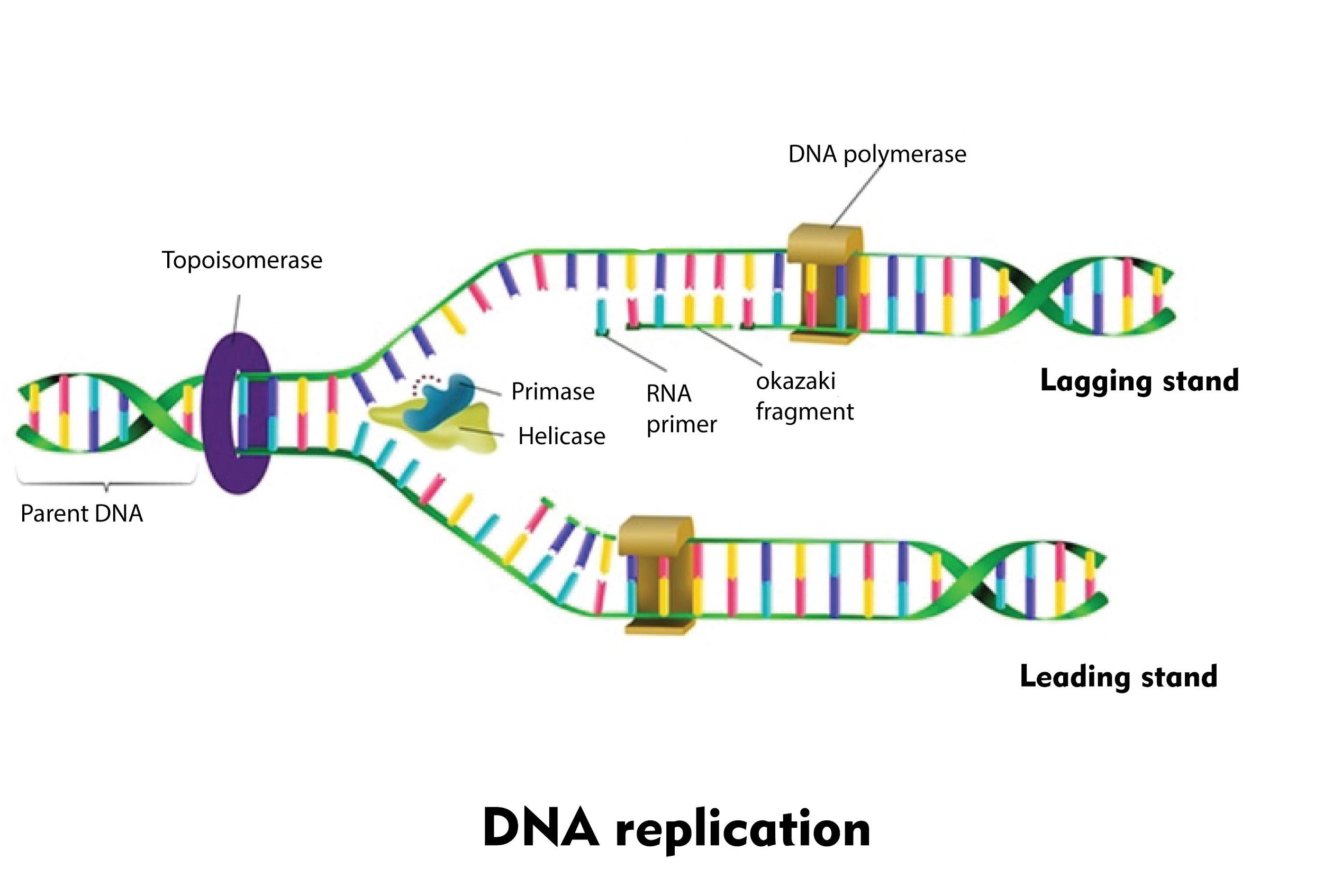
What is the importance of copying of DNA during reproduction ?
Answer
598.2k+ views
Hint:Copying of DNA leads to DNA replication at cell division. It is essential for the transfer of parent(s) genes to the next species of the same kind. This factor is centered on the continuity of species life.
Complete answer:
During the reproduction process, the DNA copying (replication) mechanism is important as the copying of DNA helps to transfer the information or characters from parents to offspring. Copying DNA is also important as DNA (Deoxyribonucleic acid) is the genetic material found in the chromosomes that are present in a cell nucleus.
During reproduction, copying of DNA is necessary, because:
- DNA replication ensures that an equivalent amount of DNA is obtained by each daughter cell produced at the end of the cell division.
- If DNA is not replicated then the cells of the daughter will not obtain all the requisite genes.
- Essential proteins encoded by DNA can be missing if DNA is not replicated.
- Copying DNA can lead to recombination leading to evolution.
- Passing of genetic material from one generation to another triggers identical functions for the species.
- Demographic stability is maintained.

Note: DNA determines the design of an individual's body. The DNA which is passed to offspring from parents makes them look identical. For reproduction the copying of DNA is important. During replication, additional DNA copies are made which are necessary for the new cells formed after cell division. Also, some minor changes during DNA replication are responsible for bringing long-term variations.
Complete answer:
During the reproduction process, the DNA copying (replication) mechanism is important as the copying of DNA helps to transfer the information or characters from parents to offspring. Copying DNA is also important as DNA (Deoxyribonucleic acid) is the genetic material found in the chromosomes that are present in a cell nucleus.
During reproduction, copying of DNA is necessary, because:
- DNA replication ensures that an equivalent amount of DNA is obtained by each daughter cell produced at the end of the cell division.
- If DNA is not replicated then the cells of the daughter will not obtain all the requisite genes.
- Essential proteins encoded by DNA can be missing if DNA is not replicated.
- Copying DNA can lead to recombination leading to evolution.
- Passing of genetic material from one generation to another triggers identical functions for the species.
- Demographic stability is maintained.

Note: DNA determines the design of an individual's body. The DNA which is passed to offspring from parents makes them look identical. For reproduction the copying of DNA is important. During replication, additional DNA copies are made which are necessary for the new cells formed after cell division. Also, some minor changes during DNA replication are responsible for bringing long-term variations.
Recently Updated Pages
Master Class 11 Business Studies: Engaging Questions & Answers for Success

Master Class 11 Computer Science: Engaging Questions & Answers for Success

Master Class 11 Economics: Engaging Questions & Answers for Success

Master Class 11 Social Science: Engaging Questions & Answers for Success

Master Class 11 English: Engaging Questions & Answers for Success

Master Class 11 Chemistry: Engaging Questions & Answers for Success

Trending doubts
Draw a diagram of nephron and explain its structur class 11 biology CBSE

Explain zero factorial class 11 maths CBSE

Chemical formula of Bleaching powder is A Ca2OCl2 B class 11 chemistry CBSE

Name the part of the brain responsible for the precision class 11 biology CBSE

The growth of tendril in pea plants is due to AEffect class 11 biology CBSE

One Metric ton is equal to kg A 10000 B 1000 C 100 class 11 physics CBSE




